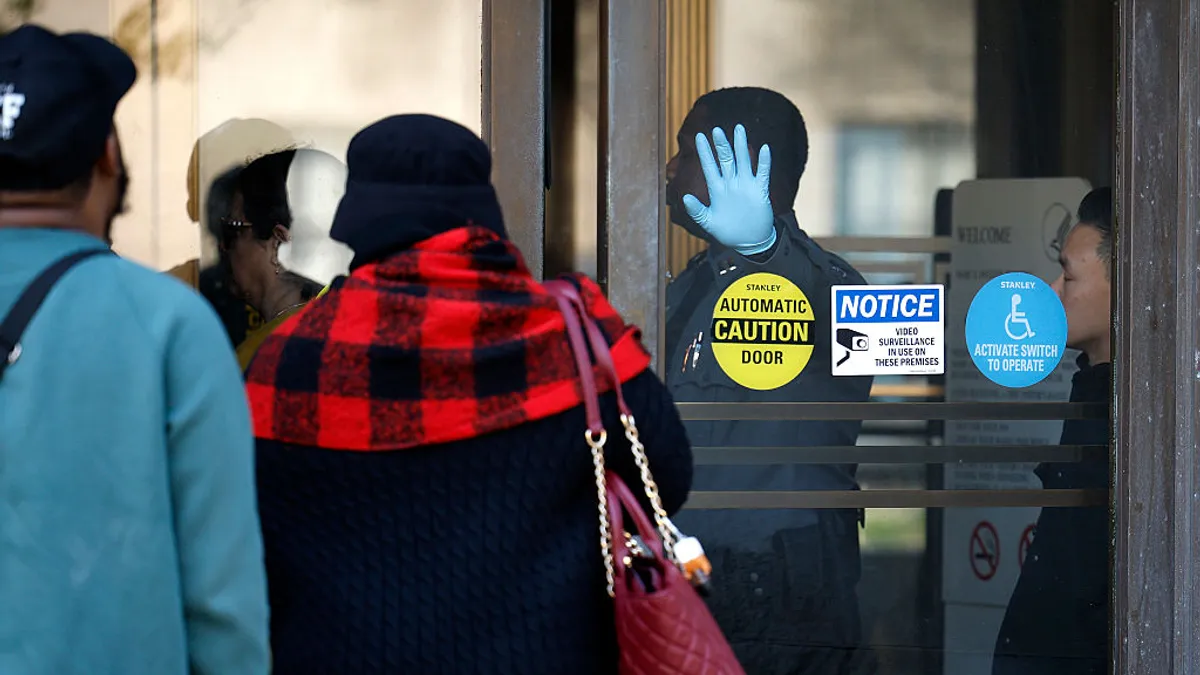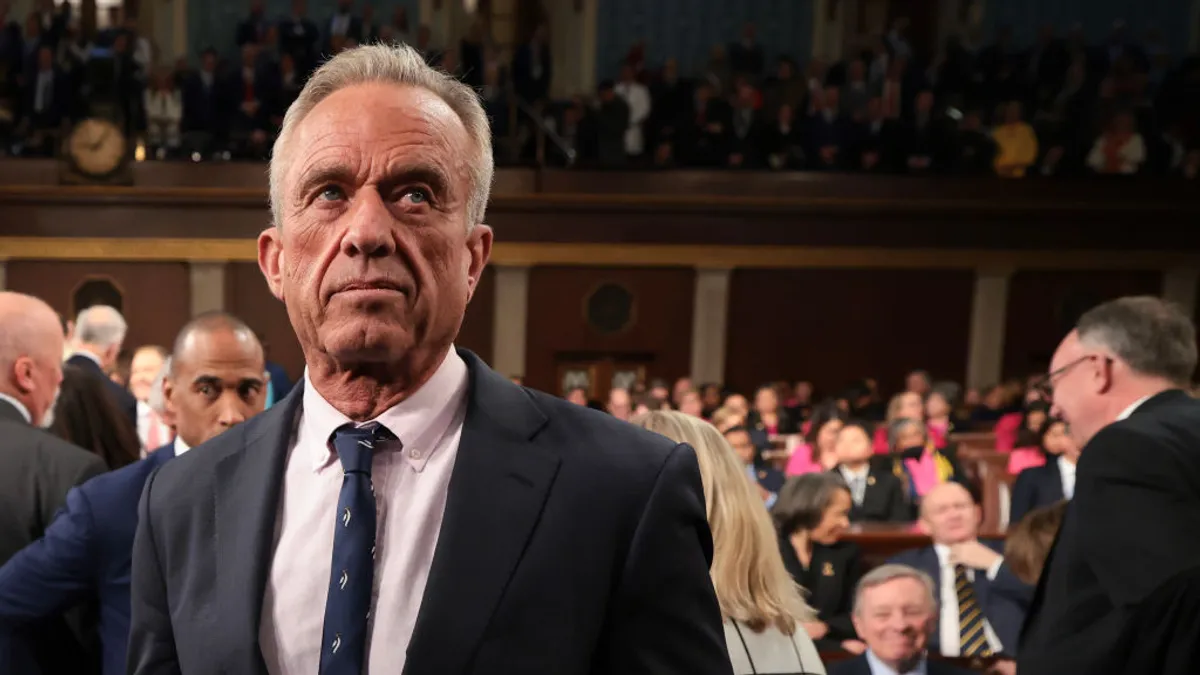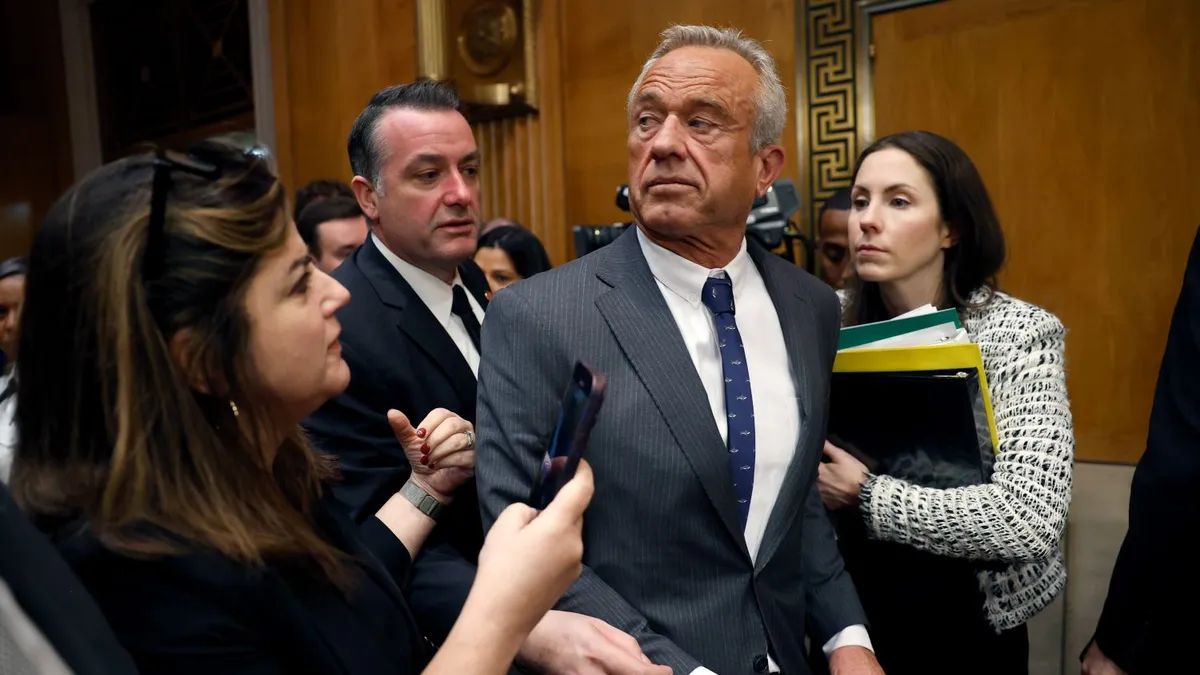Employees at the Food and Drug Administration’s medical device center on Tuesday received notice that they would be cut amid massive layoffs at federal health agencies. The reductions included people who work in communications and records requests; regulatory programs and administrative services; and other functions, according to two FDA employees and one person who was laid off from the agency yesterday. All three spoke to MedTech Dive on the condition of anonymity.
The layoffs followed a weekend of uncertainty and stress for federal workers about their future job status. The Department of Health and Human Services announced last week that it would cut 10,000 full-time employees, including 3,500 FDA workers.
People working at the agency said it was an emotional day, with uncertainty about more cuts ahead.
“Everyone has very low morale. It’s just brutal,” said a product reviewer at the FDA. “People with 15-20 years of service are just gone.”
The layoffs began early Tuesday and were rolled out in a haphazard fashion. Some people at the FDA’s Center for Devices and Radiological Health first learned about the cuts when their badges to get into the office no longer worked, two staffers told MedTech Dive.
People who were laid off received emails from HHS, sometimes with incorrect information. A person who worked for CDRH’s Office of Communication, Information Disclosure, Training and Education said they received a notice that included incorrect performance review scores and contact information for an HHS equal employment opportunity representative who is no longer employed.
On Tuesday afternoon, CDRH leaders and some heads of offices held a meeting over Microsoft Teams to acknowledge the cuts. The meeting confirmed that the Office of Management and the communication office were the most heavily affected within CDRH, said two sources. Starlet Johnson, who leads the communication office, and Janelle Barth, who leads the management office, were included in the cuts, the people said.
“I thought the CDRH leadership actually led today,” the FDA product reviewer said. “It felt like the first time they just openly acknowledged what’s happened.”
It was “just goodbyes and crying,” said one CDRH employee.
Leaders were cut across the Office of Regulatory Programs, said the employee. The office, part of the FDA’s Office of Product Evaluation and Quality, manages regulatory programs for device review, recalls and adverse event reports, among other tasks.
The HHS and the FDA did not answer how many employees had been cut from the FDA. When asked to confirm the specific offices and number of CDRH staff that were cut, an HHS spokesperson directed MedTech Dive to a statement from Secretary Robert F. Kennedy Jr.
“This is a difficult moment for all of us at HHS. Our hearts go out to those who have lost their jobs,” Kennedy wrote on X, the platform formerly known as Twitter. “But the reality is clear: what we’ve been doing isn’t working.”
Kennedy cited numbers that showed HHS’ budget has increased by 38% over the last four years, although that statement lacks key context. At CDRH, the agency’s budget increased in 2023 through user fee agreements, allowing the agency to collect more from device companies over five years in exchange for hiring more people. The agreement nearly doubled the amount the CDRH could collect from the previous deal in 2017.
The only statement on the FDA’s website Tuesday was an announcement that Martin Makary had been sworn in as FDA commissioner. Makary had told the Senate last month that he would undertake an “assessment” of agency staffing if confirmed, but did not comment on whether the cuts were appropriate.
Effect on device review
FDA staff and outside observers questioned how the cuts would affect the agency’s day-to-day functions. The HHS, when the layoffs were first announced, said it would not cut people who review medical devices or inspectors, although the agency did not clearly say how it would define who is involved in medical device reviews.
AdvaMed, a prominent medical device lobbying group that had criticized previous FDA cuts in February, took a more optimistic tone. CEO Scott Whitaker wrote in an emailed statement that AdvaMed agrees with Kennedy’s goals of efficiency and accountability.
“If it’s true that medical device reviewers and inspectors haven’t been affected, then that is good news,” Whitaker wrote. “Looking forward, our view is that any reduction in force should be accompanied by policy and regulatory improvements that encourage innovation in medtech.”
Madris Kinard, a former FDA analyst and CEO of Device Events, a company that collects and organizes recall and adverse event data, raised concerns about cuts to communications staff who review Freedom of Information Act requests. A CDRH employee also confirmed the FOIA cuts. The FDA receives protected health information in adverse event reports, which describe injuries, malfunctions or deaths associated with medical devices. The CDRH has to redact portions of those reports to remove physician or hospital names.
“Without this staff,” Kinard wrote in an email, “the safety data cannot be released each month.”
Jason Brooke, a medical device attorney and managing member at Brooke & Associates, said clients are asking what the cuts will mean for them.
“My response has been that there is no scenario where this makes it easier or faster to get products to market,” Brooke said. “At the end of the day, patients will suffer as a result.”
Brooke added that he has heard a common refrain from the people that remain at the agency: “I don’t know how we move forward after this.”
















